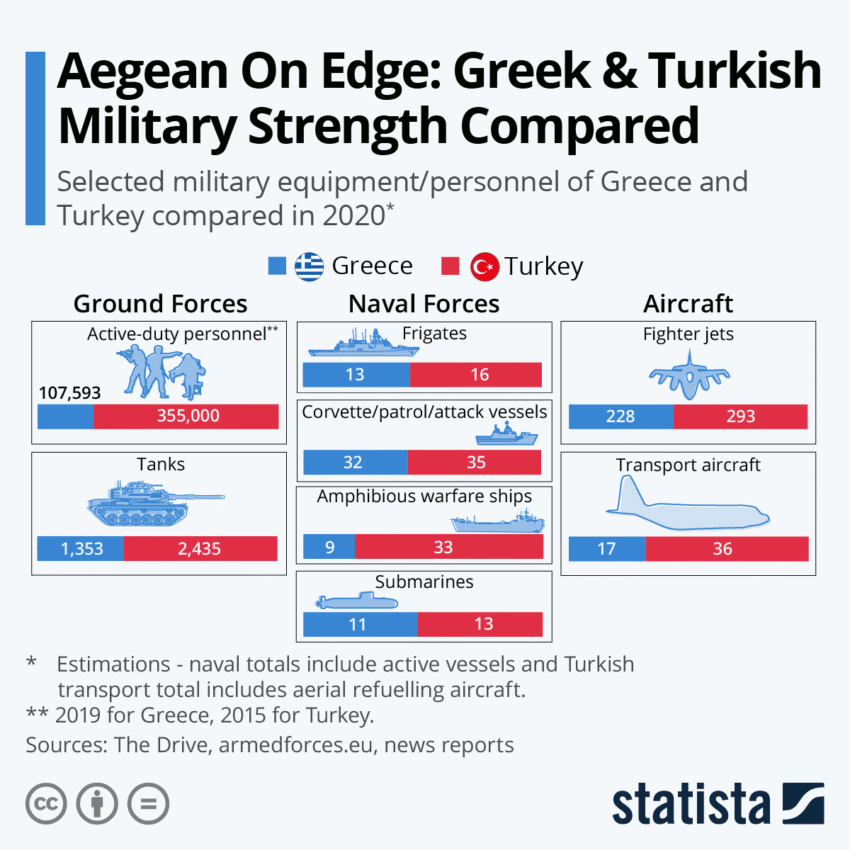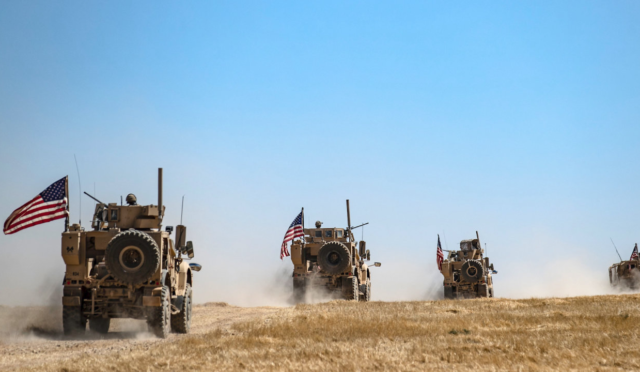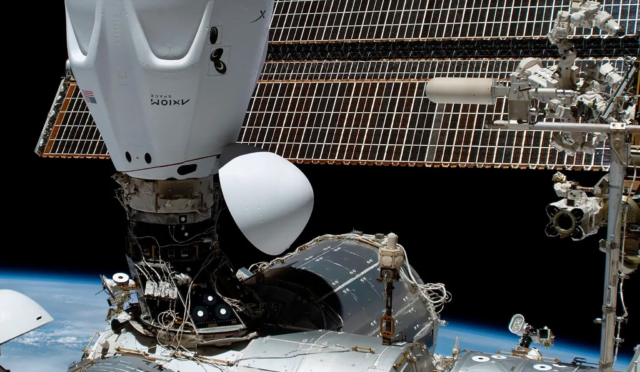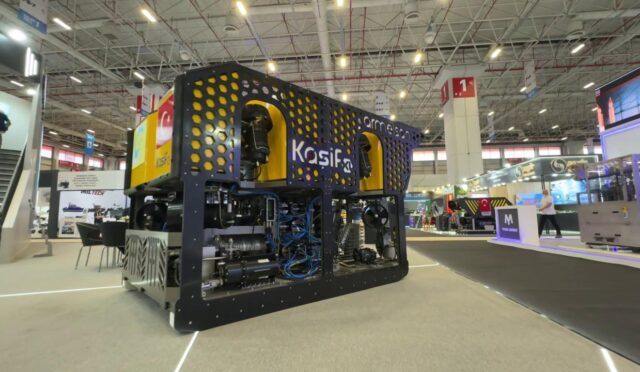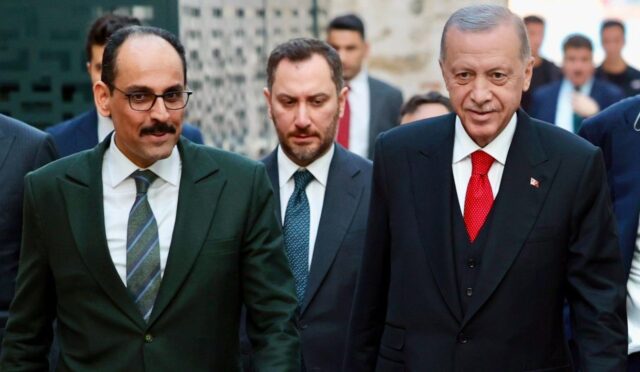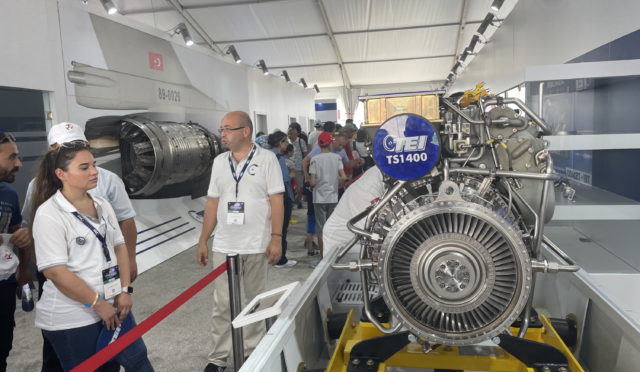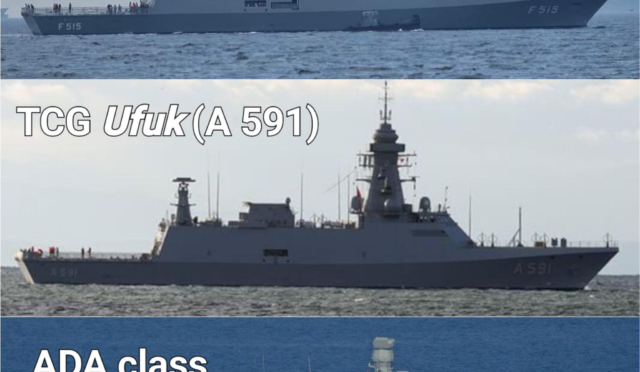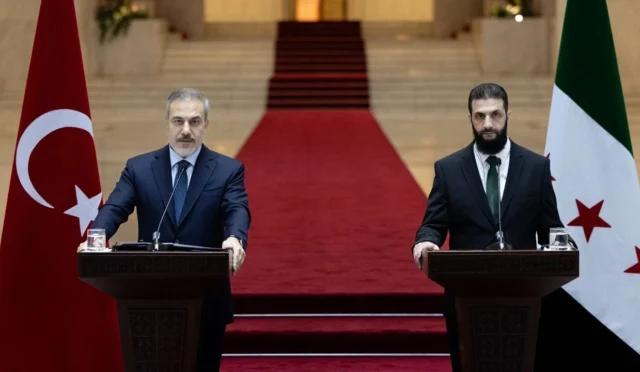Turkey’s Resilience in a Shifting Geopolitical Landscape
**In a world characterized by geopolitical instability, Turkey stands out as a nation navigating complex threats with growing strength. In regions where weaker states crumble under external pressures, Turkey’s resilience emerges as a beacon of hope. Countries like Syria, Iraq, and Afghanistan have devolved into chaos, allowing terrorist groups and foreign powers to exploit the vacuum left behind. As desperate migrants flee these conflict zones, Turkey has maintained a significant role, preventing the same fate for itself while managing regional challenges.**
The dynamics at play are stark: wealthier nations, particularly in the Gulf, seek to avoid similar disarray by investing heavily in alliances, recently pledging colossal sums to bolster security ties with the U.S. However, Indonesia’s internal strife showcases that mere financial investment doesn’t equate to power or stability. Observing Turkey’s recent diplomatic activities underscores a shift in its geopolitical role.
Recent Diplomatic Engagements
In the past week alone, Turkey has hosted vital discussions that reflect its emerging influence. Russian and Ukrainian delegations convened in Istanbul, initiating dialogue to explore pathways for peace. Concurrently, European officials and Iranian representatives engaged in nuclear negotiations, highlighting Turkey’s strategic position as a mediator in critical international issues. This is further exemplified by Syrian leader Ahmed al-Shara’s engagement with former U.S. President Trump, with Turkey’s President Erdoğan participating virtually, accentuating the importance of Turkey in international diplomacy.
What’s more, a Greek Cypriot publication noticeably called for improved relations with Turkey, signaling a recognition of its pivotal role in the Eastern Mediterranean. This transition from pariah to partner exemplifies Turkey’s diplomatic growth and reflects a nuanced understanding of regional security dynamics.
Strengthening Defense Alliances
Turkey’s defense industry stands at the forefront of its geopolitical strategy, gaining increasing respect from European nations seeking security solutions amid a tense landscape. The Financial Times recently highlighted this trend, emphasizing that nations like Spain are now turning to Turkey for vital defense partnerships. This was confirmed when Spain signed a deal with Turkish aerospace manufacturer TUSAŞ for the procurement of 24 Hürjet training aircraft, marking a significant step in defense collaboration.
Additionally, Turkish companies are not just suppliers but are invited to engage in joint ventures, showcasing Turkey’s capabilities in high-tech military production. Notable collaborations are in the pipeline, such as Baykar’s co-production deal with Italy’s Leonardo and TUSAŞ’s partnership with Spain’s Airbus.
Technological Advancements in Defense
As Turkey’s defense initiatives gain traction, their technological advancements are noteworthy. TEI, a leading aviation company, recently unveiled the first visuals of an engine intended for the KAAN fighter jet, indicating progress in indigenous military engineering. This asset not only expands Turkey’s military capabilities but also enhances reliability in joint defense projects, as partners now regard Turkey as a competent player in defense technology.
The paradigm has shifted from previously relying on Western nations like the U.S., France, or Germany for military hardware to a new model where Turkey serves as a source of supply and innovation. Turkish enterprises are driving the narrative, positioning themselves as key contributors in the production and distribution of defense materials across the globe.
Geopolitical Consequences of Military Partnerships
The implications of these defense collaborations extend beyond mere economics; they stabilize Turkey’s standing on the global stage. For instance, Turkey’s support enabled Pakistan to solidify its military edge over India, though not directly from Turkish weaponry. Being on the victorious side is a testament to Turkey’s growing cachet in international relations.
Furthermore, Turkey’s backing of leaders like Ahmed al-Shara in Syria enhances its influence, granting legitimacy to its diplomatic efforts. Domestically, the situation is shifting as well, with the PKK announcing intentions to disarm. Whether this promise will materialize remains to be seen, but it is evident that Turkey’s strength plays a critical role in stabilizing its internal landscape.
The Future of Turkey’s Global Influence
As Turkey emerges from the shadows of its past and strengthens its standing, perceptions of national identity and resilience are evolving. Internal challenges persist, with factions seeking to undermine progress for ideological reasons. However, the narrative of Turkey as a strong, independent nation is becoming increasingly difficult to contest.
The remarkable achievements of this single week not only foreshadow a promising trajectory for Turkey but also underscore the renaissance of a nation ready to embrace its responsibilities in a volatile world. With each step forward, Turkey positions itself as an indispensable actor in global geopolitics.
Looking Ahead: The Century of Turkey
As Turkey embarks on what some are calling the Century of Turkey, optimism for the nation’s future is palpable. While there will always be detractors wary of Turkey’s rise, it is clear that the path forward is one of empowerment and strength. The progress seen thus far is merely a glimpse of what lies ahead.
Amidst the cacophony of skepticism, Turkey’s resolve to build upon its military and diplomatic successes stands unshaken. As it develops homegrown technology, including its jet engine capabilities, Turkey sends a message to both allies and adversaries: it is here to stay, and it will thrive.
